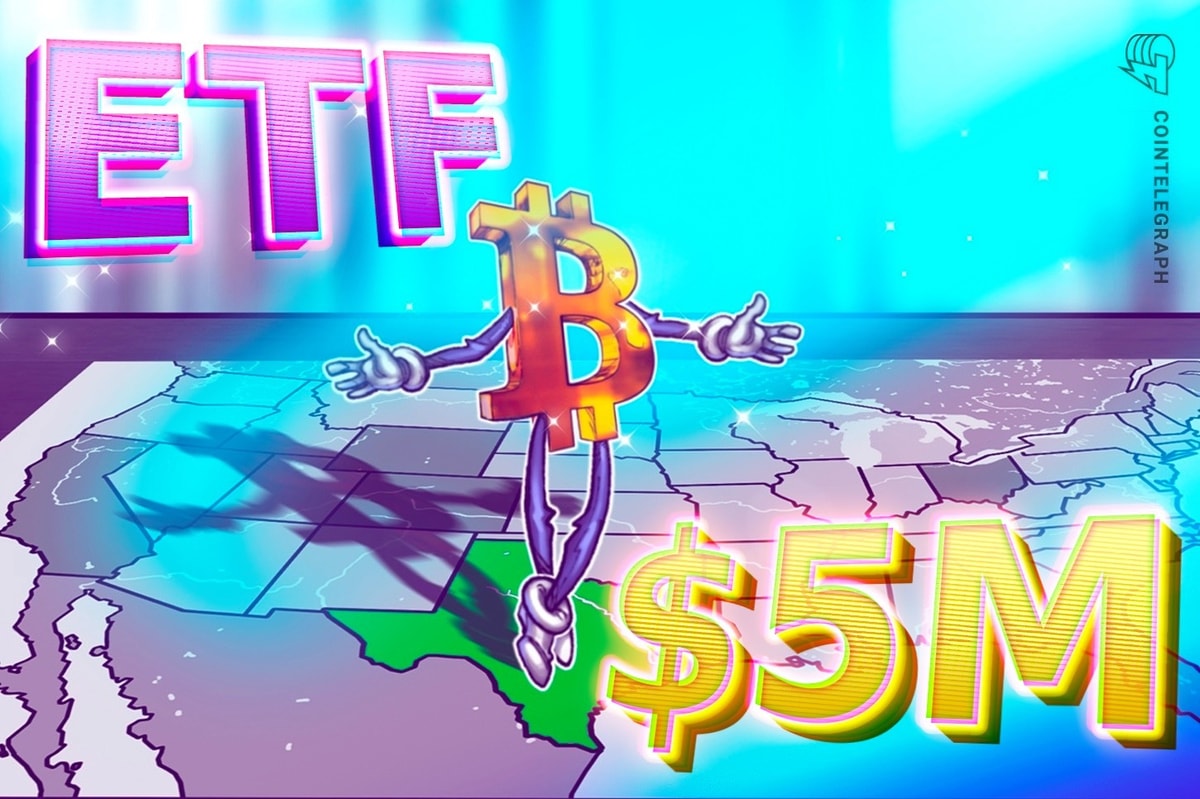Education is key to financial freedom, says Bitcoin advocate Najah Roberts
4 min read
Can Bitcoin help Black Americans build wealth in a country that has historically and intentionally prevented them from doing so? The Agenda podcast recently sat down with Najah Roberts, a Bitcoin educator and entrepreneur, to explore the question.
In Part 1 of the conversation, released on Feb. 1, Roberts told hosts Jonathan DeYoung and Ray Salmond that Bitcoin (BTC) might be the greatest opportunity Black Americans have had to close the country’s wealth gap. She stressed the importance of communities having financial sovereignty and control over their own money, which can help uplift entire generations.
In Part 2 of their conversation, released on Feb. 15, DeYoung and Salmond chat with Roberts about building financial literacy, the struggles of operating a community-focused crypto exchange, and how to work with children and youth to prepare them for the blockchain and technology revolution that is already underway.
Self-sufficiency and self-custody
While Bitcoin may offer a path to self-sufficiency, Roberts strongly believes that investment moves must be made in parallel with the best practices of financial literacy: “Never invest more than you can afford to lose. That is a ground rule.” She stressed that Bitcoin is not a “get-rich-quick” scheme — adding to “be very careful in what you invest in because all coins are not created equal, and most of these coins are created to extract money from your bank account.”
Roberts pointed out that financial literacy is rarely a topic taught in schools, and she believes that’s by design:
“If they have people that don’t know better, they won’t do better. And they continue to have people that will work in this country and not really understand that they’re working for money instead of allowing money to work for them. And so the select few that get that memo, they do well. And so, as we continue to get into this new digital space, education has got to be the foundational piece for both children and adults.”
Roberts pushes the importance of education with her brick-and-mortar Bitcoin exchange, which has two elements: The Bitcoin Banq is the for-profit exchange, while Crypto Blockchain Plug is an associated nonprofit educational center that teaches people the ABCs of BTC. However, the entities’ focus on self-custody and not holding customer assets has caused some challenges for Roberts, who explained that it was hard to find a banking partner:
“They told me I had to have $1 million a day minimum. I don’t hold $1 million a day. I’m not doing some of the things that some of these other exchanges are doing to ensure that they’re padding their pockets, because we immediately take the money from the individuals, and we immediately give them their Bitcoin. We’re not holding on to their Bitcoin. We’re teaching them day one to be self-sovereign.”
Crypto is for the children
While many adults remain skeptical about crypto — or simply don’t understand it — Roberts said that children and the youth often have an instinctual understanding of blockchain’s potential. She runs Crypto Kids Camp, an educational program for children and young adults in inner-city and rural areas, teaching participants about cutting-edge technologies like nonfungible tokens (NFTs), virtual reality, drones and more.
In Roberts’ experience, “Digital currency to them is like second nature,” as they are “already using it in video games. They’re buying stuff with Robux, and they’re doing all this other stuff already.”
At the end of the day, what Roberts wants to convey to both the kids and their parents is that learning new technologies opens up new possibilities for growth and success. “All of these things we’re bringing to the children’s mind early,” said Roberts, adding:
“Our children need to be made aware of these technologies so as they grow and as their parents watch them, they’re able to actually maneuver them into the space that’s most important to them and not actually what we want as parents or what we want as teachers, because that does not fare well. […] What we want to do is expose children to every aspect of technology so that they can pick and choose what works or what they like the best. And then that parent can actually take that and have something to build upon.”
To hear more from Roberts, tune in to the full episode of The Agenda on Cointelegraph’s new podcasts page, Spotify, Apple Podcasts, Google Podcasts or TuneIn — and be sure to check out Cointelegraph’s other new shows as well.
The views, thoughts and opinions expressed here are the authors’ alone and do not necessarily reflect or represent the views and opinions of Cointelegraph.




